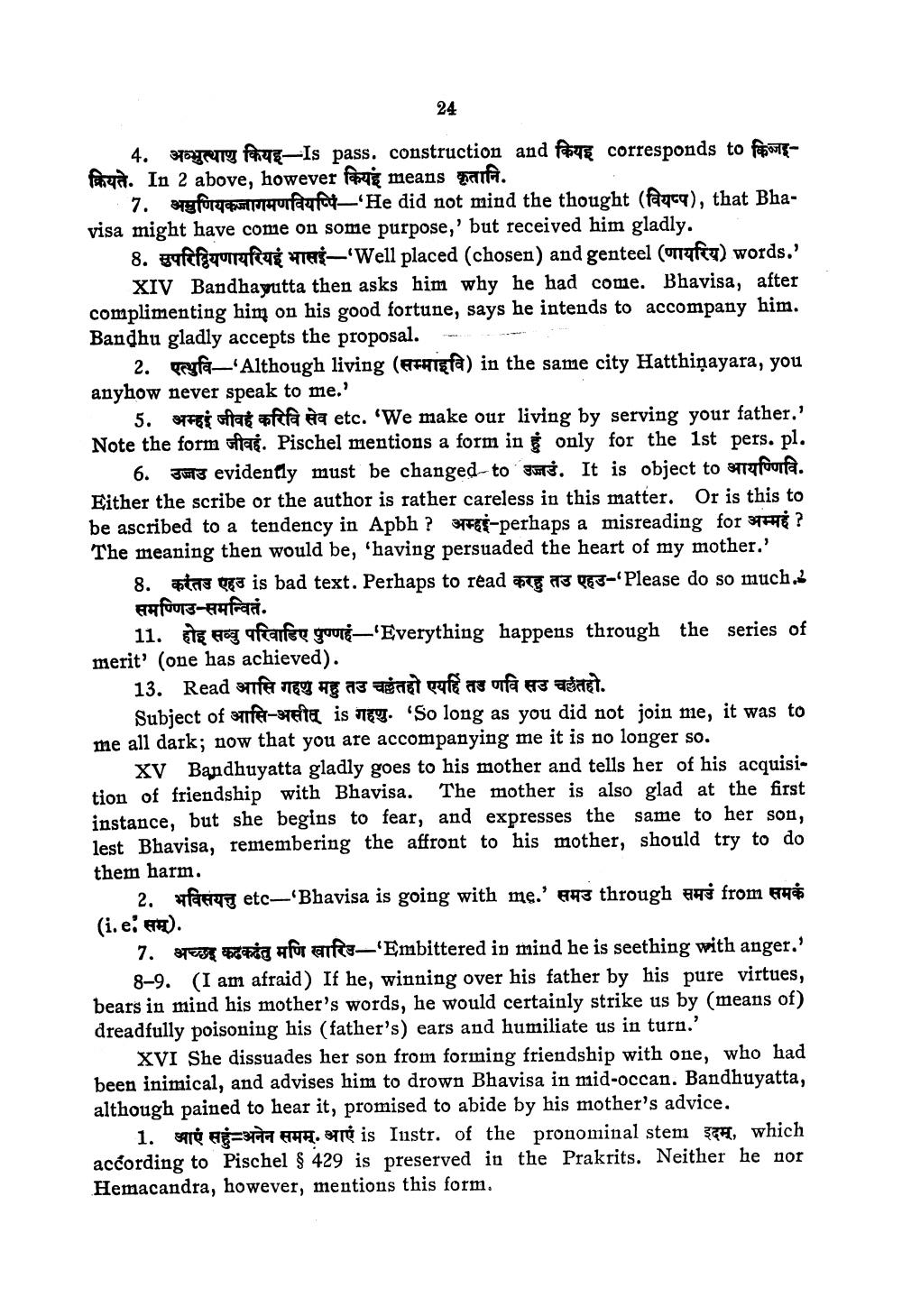________________
24
4. अभुत्थाणु कियइ - Is pass construction and कियह corresponds to किजइक्रियते . In 2 above, however कियt means कृतानि.
7. अम्नुणियकजागमणवियप्पिं— ' He did not mind the thought ( वियप्प), that Bhavisa might have come on some purpose,' but received him gladly.
8.
ffgaft-Well placed (chosen) and genteel (af) words.' XIV Bandhayutta then asks him why he had come. Bhavisa, after complimenting him on his good fortune, says he intends to accompany him. Bandhu gladly accepts the proposal.
2. एत्थुवि - ' Although living ( सम्माइवि) in the same city Hatthinayara, you anyhow never speak to me.'
5. Es hat affa a etc. 'We make our living by serving your father.' Note the form fag. Pischel mentions a form in only for the 1st pers. pl.
6. उज्जउ evidently must be changed to उज्जडं. It is object to आयण्णिवि. Either the scribe or the author is rather careless in this matter. Or is this to be ascribed to a tendency in Apbh ? अम्हई-perhaps a misreading for अम्महं ? The meaning then would be, 'having persuaded the heart of my mother.'
8. करंतर एहउ is bad text. Perhaps to read करहु तउ एहउ - 'Please do so much. 2 समणिउ - समन्वितं .
11. होइ सब्बु परिवाडिए पुण्णहं— 'Everything happens through the series of merit' (one has achieved).
13. Read आसि गहणु महु त चलतहो एयहिं तड णवि स चलतहो.
Subject of आसि - असीत् is गहणु. 'So long as you did not join me me all dark; now that you are accompanying me it is no longer so.
it was to
XV Bandhuyatta gladly goes to his mother and tells her of his acquisition of friendship with Bhavisa. The mother is also glad at the first instance, but she begins to fear, and expresses the same to her son, lest Bhavisa, remembering the affront to his mother, should try to do them harm.
2. भविसयत्तु etc - 'Bhavisa is going with me.' समउ through समउं from समकं (i. e. ).
7.
for aft-'Embittered in mind he is seething with anger.' 8-9. (I am afraid) If he, winning over his father by his pure virtues, bears in mind his mother's words, he would certainly strike us by (means of) dreadfully poisoning his (father's) ears and humiliate us in turn.'
XVI She dissuades her son from forming friendship with one, who had been inimical, and advises him to drown Bhavisa in mid-occan. Bandhuyatta, although pained to hear it, promised to abide by his mother's advice.
1. आएं सहु-अनेन समम् आएं is Instr. of the pronominal stem इदम् which according to Pischel § 429 is preserved in the Prakrits. Neither he nor Hemacandra, however, mentions this form.




